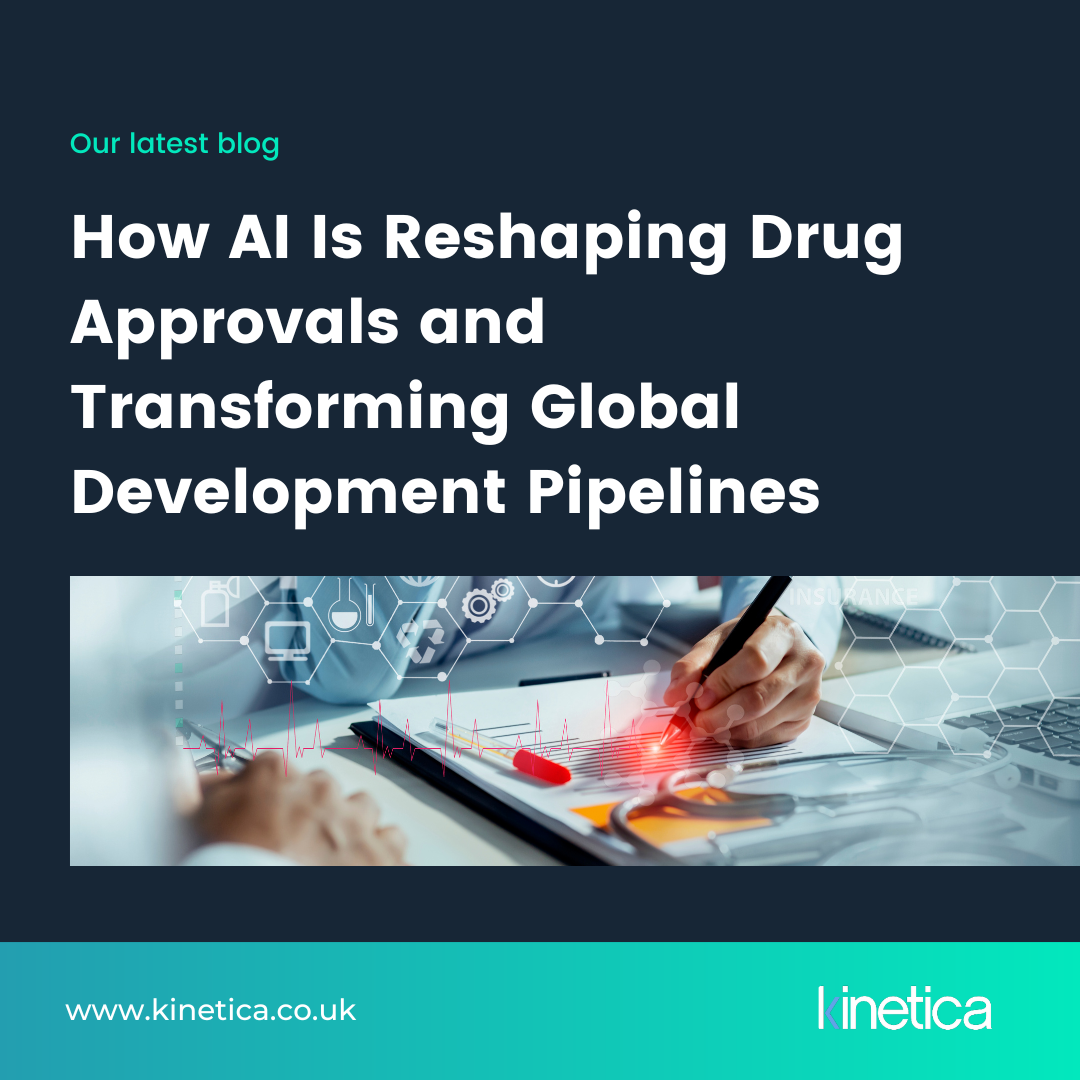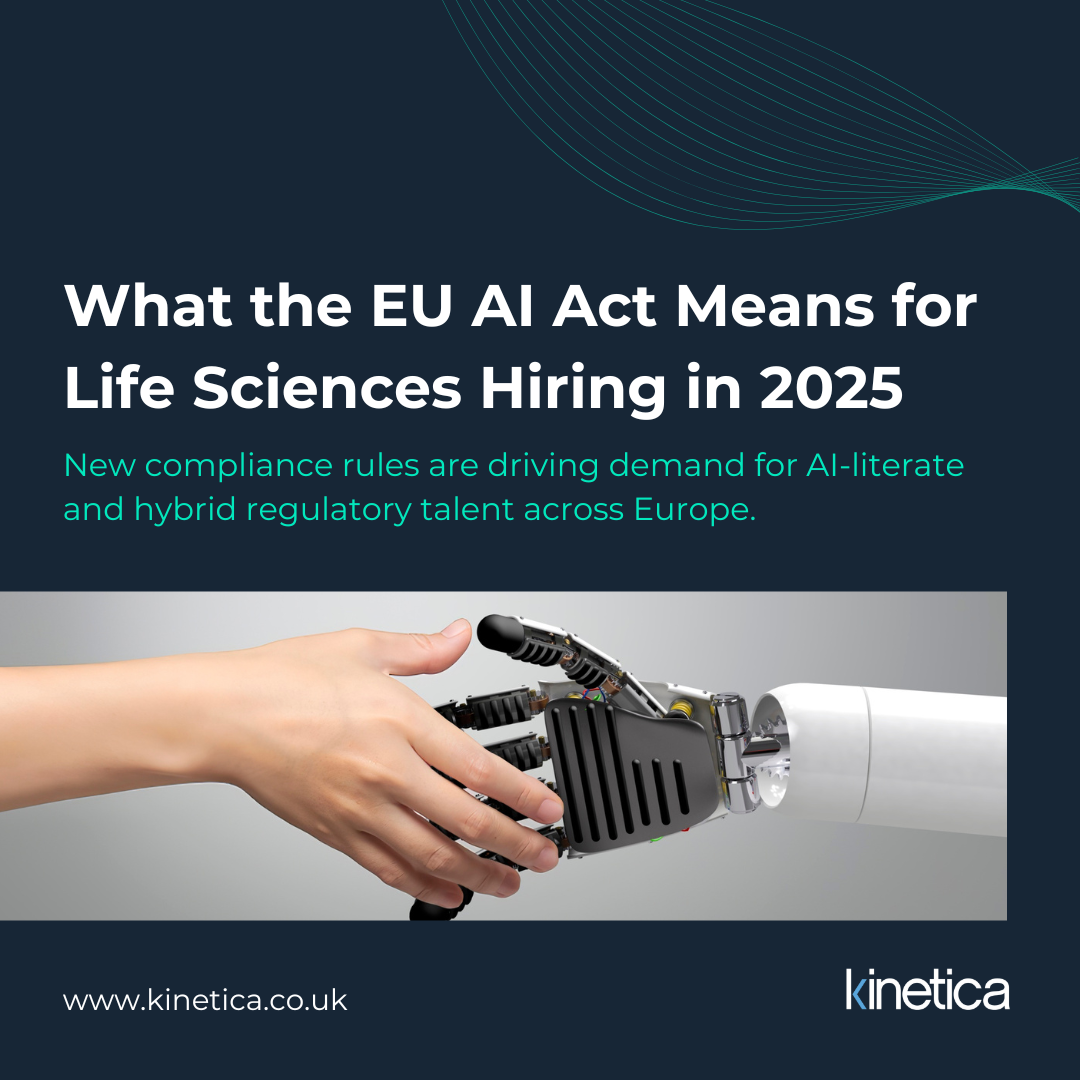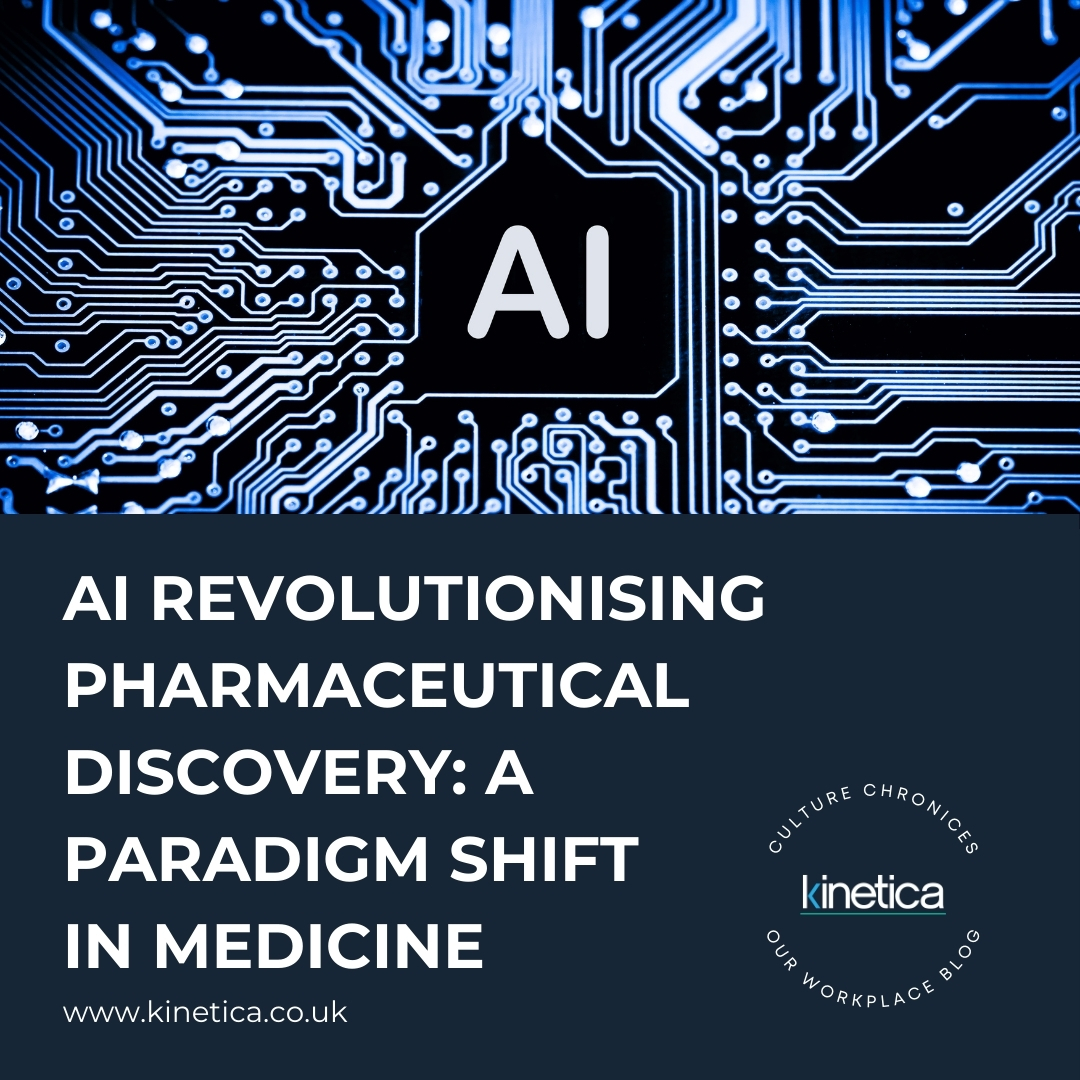
INSIGHTS
The latest insights & news from Kinetica
What the EU AI Act Means for Life Sciences Hiring in 2025
20 May, 20255 MinutesThe European Union's Artificial Intelligence Act (EU AI Act), which came into force towa...

The European Union's Artificial Intelligence Act (EU AI Act), which came into force towards the end of last year, represents a significant regulatory shift for industries utilising AI technologies, including the life sciences sector. As the Act's provisions begin to take effect, life sciences companies must navigate new compliance requirements that will inevitably impact their hiring strategies and workforce development.
The EU AI Act introduces a risk-based framework for AI applications, categorising them into four levels: unacceptable, high, limited, and minimal risk. High-risk AI systems, which include many applications in healthcare and life sciences, are subject to stringent requirements such as conformity assessments, transparency obligations, and human oversight mandates.
Implications for Life Sciences Hiring
- Increased Demand for AI Compliance Experts
With the Act's emphasis on compliance, there is a growing need for professionals skilled in regulatory affairs, quality assurance, and legal aspects of AI. Companies are seeking individuals who can navigate the complex landscape of AI regulations to ensure their products and services meet the new standards.
- Emergence of Hybrid Roles
The intersection of AI and life sciences is giving rise to hybrid roles that combine expertise in both domains. Positions such as AI Compliance Officers, Clinical Data Scientists, and Regulatory AI Specialists are becoming more prevalent, requiring candidates to possess a diverse skill set.
- Focus on AI Literacy
The EU AI Act mandates AI literacy across organisations, necessitating training programs to upskill existing employees.This shift underscores the importance of continuous learning and adaptability in the workforce.
Strategies for Talent Acquisition
- Proactive Recruitment: Organisations should proactively identify and recruit talent with the necessary skills to manage AI compliance and integration.
- Training and Development: Investing in training programs to enhance AI literacy among current employees can bridge skill gaps and foster a culture of compliance.
- Collaborations with Educational Institutions: Partnering with universities and training centres can help develop a pipeline of qualified candidates equipped to handle the evolving demands of the industry.
The EU AI Act is reshaping the life sciences landscape, placing a premium on compliance and ethical AI use. Companies that adapt their hiring strategies to meet these new requirements will be better positioned to thrive in this regulated environment. Emphasising AI literacy, fostering hybrid expertise, and proactively addressing compliance challenges are key steps toward building a resilient and future-ready workforce
Is your team prepared for the regulatory impact of the EU AI Act and do you have the talent in place to navigate it?
If you're hiring or just want to understand how this legislation could affect your next key hire, feel free to get in touch with the team at info@kinetica.co.uk.


